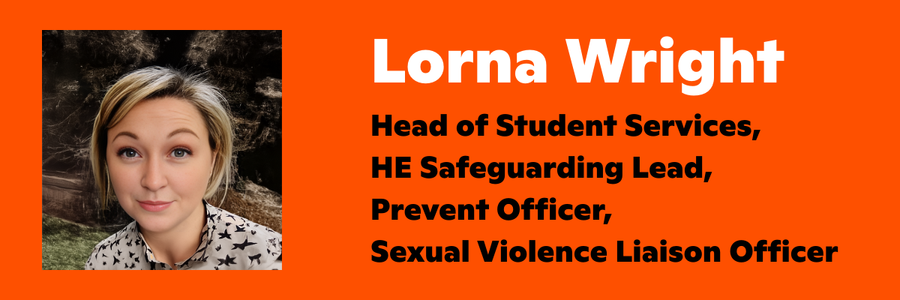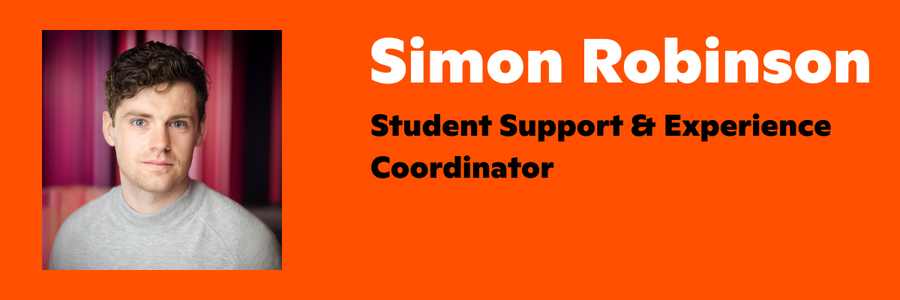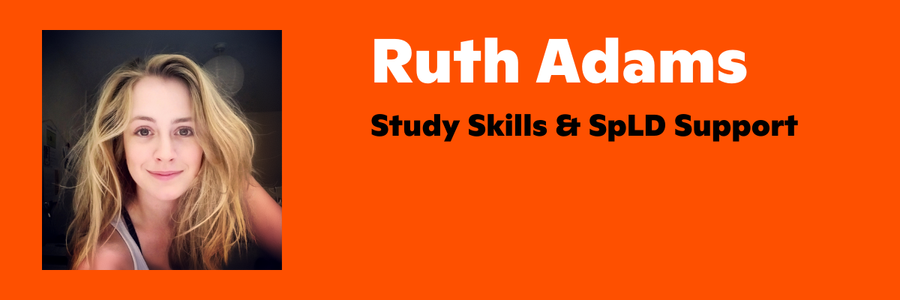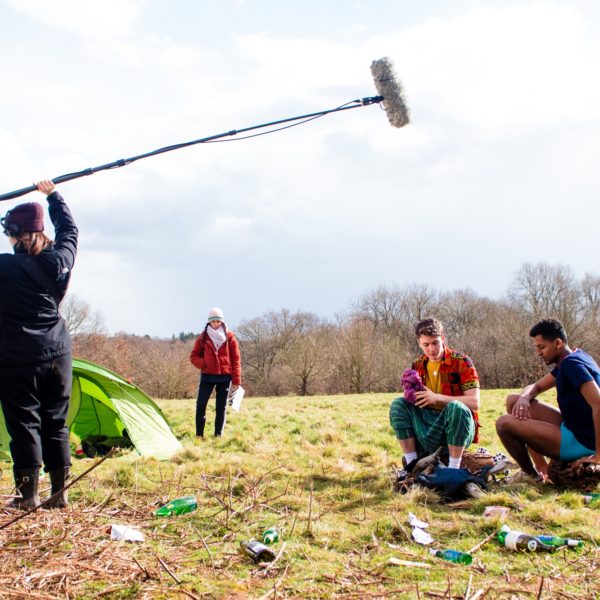
Supporting students is a top priority at ArtsEd. We strive to create a happy, inclusive community which is supported by excellent pastoral care and a focus on mental and physical health and wellbeing.
Mental Health & Wellbeing

I manage the Student Services Team. We are responsible for all aspects of student health, safety, and wellbeing at ArtsEd. The Student Services Team consists of the Student Support & Experience Coordinator, Physical Health & Wellbeing Supervisor, Massage Therapist, Counsellors, Physiotherapists and Gym Instructors. We innovate and collaborate to support students and staff members by creating effective and appropriate student-centred support plans. These plans may work in tandem with the Support for Study process, effective management of the student attendance policy and/or allocation of hardship fund payments. Students can contact me and the team about issues with travel, accommodation or finances and we will always do our best to help. Should you have any questions about student services at ArtsEd, require additional support as a student or if you are a staff member who wants to discuss how best to support students, please get in touch.

My role is to provide a wide range of student services that promote health, wellbeing, and an enriching experience for all students. I offer information, advice, and support to students throughout the learning journey. Working closely with the Head of Student Services and academic staff, I ensure prompt and informative assistance, and manage student enquiries. I am here to support students and staff members in fostering a student-centred environment. Should you have any questions about student support provisions or require additional support, please don’t hesitate to reach out to us. We’re here to assist you.
Counselling Services
Students can self-refer to ArtsEd’s Counselling Service, which offers a confidential space for students discuss matters that are impacting their mental health and wellbeing.
Complete the form here to self-refer for counselling.
Students have access to counselling sessions which can be delivered online or in person, or combination of both, at a convenient time that suits you. Usually, a maximum of six free sessions is offered, but this may be extended in exceptional circumstances.
If longer-term therapy or specialist help is needed, referrals can be made via your GP to agencies within the community, or to services within the NHS. We can also provide information and advice about how to find a private counsellor or therapist.
Many of our staff are Mental Health First Aiders, trained to be a first point of contact for students who are experiencing a mental health issue or emotional distress, having initial conversations with them and supporting them to get appropriate help.
Students’ Union Wellbeing Officers are elected each year to promote awareness of mental health issues and organise regular events and fundraising activities.
Mindfulness and Yoga may be offered as part of the curriculum, providing students with regular opportunities to develop their own strategies for managing their wellbeing.
Out of Hours Support
Student services’ normal working hours are 9am-5pm Monday-Friday. For support outside of this schedule, please click here
More information can be found in the ArtsEd Support Services Website Directory here as well as in City St George’s Self Help Guides
Physical Health & Wellbeing

I am a part of the student support team and I am responsible for delivering gym and strength & conditioning sessions for BA and CertHE students. I work with the Head of Dance and the Head of Movement to ensure that the physical training on courses is as cohesive as possible, to increase performance and reduce the risk of injury. Working closely with my colleagues in the student support team, I provide injury rehabilitation sessions and general wellbeing support to students. I also oversee and supervise student use of the gym outside of taught classes and can provide individual advice when needed. You can generally find me in the gym on the third floor, so please feel free to drop by or send me an email if you have any questions.
Study Skills and SpLD Support
If you need study skills support, have or believe you may be neurodivergent or have a Specific Learning Difference (SpLD) – I’m here to help! I aim to provide support on challenges with time management, organisation, note taking, learning lines, reading, essay structuring/ planning or understanding your learning style; to enhance your academic and artistic performance. Please contact studyskills@artsed.co.uk to arrange 1-2-1 sessions that address your specific needs.
Pastoral Care
In addition to the student services team each Head of Year is responsible for the pastoral care of their student cohort. Students are also each assigned a Personal Tutor who can provide support and guidance regarding their welfare and training. Personal Tutors will provide students with formal feedback following scheduled meetings, students should feel free to request additional meetings with their Personal Tutor if they need some advice or guidance.
Attendance
By completing an Absence Request Form here you can formally request an absence by sharing the details with your Head of Year and student services. There are occasionally legitimate reasons as to why a student might need to miss a class. Examples are for illness, injury or medical appointments that cannot be scheduled outside of a student’s timetable. Students must seek approval regarding these types of absences for these to be authorised. For more information, please see the attendance policy
Hardship Fund
We understand that students may have short-term, unforeseen difficulties during their studies. In these circumstances, ArtsEd students are able to apply for assistance through the hardship fund. The hardship fund is a small, means-tested fund which is able to provide one-off payments to students to assist them to continue with their studies and complete their degree. The amounts awarded will normally not exceed £250. Each application will be considered on an individual basis by the Hardship Panel. For more information, please see the hardship policy
SpeakUp
SpeakUp is our higher education online reporting tool. We expect all members of the community to be respectful, open and inclusive. We take active steps to protect these values and make sure that ArtsEd is a safe and welcoming place for everyone. If you experience any unwanted behaviour, or have any concerns, please speak up. We will make sure you are supported and tell you what we may be able to do next. You can find SpeakUp here
This form is used to report:
- a concern
- an incident that has occurred
- a disclosure regarding your own or someone else’s safety and wellbeing.
Bullying, Harassment & Sexual Misconduct at ArtsEd
Bullying, harassment and sexual misconduct are not tolerated at ArtsEd. We expect all members of the community to be respectful, open and inclusive. We celebrate a diverse range of views and encourage everyone to bring their entire integrated selves to our vibrant community, while respecting others who may have different views or experiences.
We take active steps to protect students from bullying, harassment and sexual misconduct, make sure support is available for anyone who needs it, and take reports of unwanted behaviour seriously.
Sexual misconduct is any unwanted or attempted unwanted conduct of a sexual nature. This includes, but is not limited to, sexual harassment, sexual assault and rape.
Bullying includes unwanted behaviour or conduct which has the purpose or effect of violating a person’s dignity or creating an intimidating, hostile, degrading, humiliating or offensive environment.
Harassment is when this unwanted behaviour or conduct is because of, or connected to, one or more of the following protected characteristics: age; disability; gender reassignment; pregnancy and maternity; race; religion or belief; sex; sexual orientation.
What do we always do?
- We talk about it
- Actively promote the respectful culture we expect of all members of our community
- Have a clear reporting process open to everyone
- Ban the use of non-disclosure agreements
- Embed intimacy training into every curriculum
- We provide training and support
- Annual workshops for all Higher Education students covering consent, boundaries and respect, and making sure everyone knows how to report concerns and what support is available
- Mandatory annual training for all members of staff in the institution
- Additional training for any member of staff involved in supporting students or managing reports of incidents
- A person-centred, trauma-informed student support service including specialist counsellors
- A team of safeguarding leads
- We adhere to safer recruitment practices and set clear boundaries
- Ensure that every member of staff has an up-to-date DBS check
- Ban any intimate relationship between staff and students
What do we do if something happens?
- Encourage anyone to use SpeakUp to tell us about any concerns
- Handle information confidentially, unless someone is at immediate risk
- The first thing we will do is talk to you about support you may need
- We will then look together at the next steps open to you and what these involve
- You can also report concerns anonymously if you prefer – although this limits what we can do next, it allows us to build a better picture of experiences at ArtsEd and adjust our approach if needed
How can we support?
- Student Support: Email studentsupport@artsed.co.uk, or speak to a team member in person. ·
- Counselling: Complete the Self-Referral Form for access to in-person or online sessions.
- External support:
-
- Rape Crisis – Helpline: 0808 500 2222 – Website: www.rapecrisis.org.uk
- Galop – Helpline: 0800 999 5428 – Website: Galop – the LGBT+ anti-abuse charity
- Victim Support – Helpline: 08 08 16 89 111 – Website: Home – Victim Support
Next Steps
- Bullying, harassment and sexual misconduct represent a serious breach of our expectations for students and staff.
- With your consent, we can investigate an allegation of bullying, harassment or sexual misconduct if it relates to another person at ArtsEd.
- We would investigate as part of our Student Misconduct and Disciplinary Procedure or Staff Disciplinary Process.
- We will communicate the outcome of a disciplinary case to you as the reporting party, although we may not always be able to tell you exactly what we did.
- If the person you have reported is not a member of the ArtsEd community, we cannot investigate internally but will support you to go to the police if you wish.
More Information
You can find more information in our policies
- Student Bullying, Harassment and Sexual Misconduct Policy
- Student Misconduct and Disciplinary Procedure
- Staff Anti-Harassment and Bullying Policy
- Staff Sexual Misconduct Policy
- Staff Code of Conduct
- Staff Disciplinary Policy and Procedure
- Code of Practice on Freedom of Speech
Disability Support
ArtsEd is committed to promoting diversity and equality of opportunity and eliminating discrimination in its practices, policies and procedures. Where a student’s needs cannot be met through inclusive practice, reasonable adjustments may be recommended to ensure students are able to fully demonstrate their abilities.
Our Disability Coordinator oversees specific learning difficulty (SpLD) provision, and further support is provided by Heads of Year, supporting students with initial diagnostics and pastoral care, alongside weekly on-site group and 1-2-1 sessions with a freelance specialist SpLD learning support tutor. These sessions help SpLD students to develop confidence and autonomy in registering, retaining and recalling their learning.
All students have access to a Study Skills Tutor during term-time to provide 1-2-1 support for students who are experiencing difficulties in any area of the curriculum, for example writing, learning lines, time management and organisation, techniques to learn choreography and more. While these sessions are aimed primarily at students with dyslexia, dyspraxia, and related learning difficulties, all students having issues with processing and organisation are welcome and should find regular appointments with a Study Skills Tutor of great use. Email studyskills@artsed.co.uk

